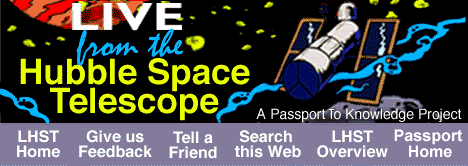

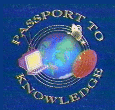
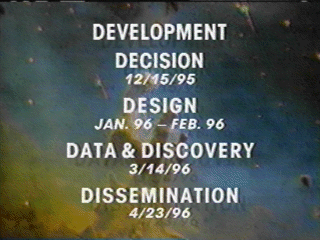
Then during January and February 1996 the people here at the Space Telescope Science Institute who are in charge of actually pointing the telescope to the correct place in the sky will write the complex computer commands to do this for the planet or planets you've selected. On March 14th, you'll see the actual information, the raw data, radioed down to the Earth from the target planet or planets during a live television program, and maybe even make a discovery in the process.
Over the next several weeks, the information will be processed by giant computers and then on April 23 you'll see the final results, right here, during our final live telecast.
Now there is more information about all of this on the Net (Internet), and in a few minutes we'll tell you how to find it, so make sure you have a pencil and paper ready. Over the coming weeks, you'll have a chance to find out the latest information about each planet, and you can discuss the various things you might want to actually observe about the planet with Space Telescope, with your Planet Advocate and each other via the Internet.
| ANNE KINNEY, Education Manager and Project Scientist for Education, STScI:It's unprecedented. We've never used Hubble Space Telescope orbits for classrooms... for the use of students before. Another unique thing about the program is that we're really trying to have the students be very involved in deciding which observations to make, which planet to look at. | 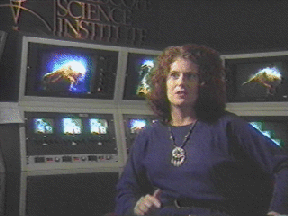 |
ALEX STORRS, Planning Scientist, "Moving Targets", STScI:
Almost all the investigations that I've thought of can lead to something
useful, certainly something publishable. We, in the academic world, tend
to think of of whether or not a result can be published, and almost all
of these observations we talked about can lead to a publication. Will it
be the next great Nobel prize-winning research, I can't say!
Closing Underwriter announcement:
Live from the Hubble Space Telescope is made possible in part
by the National Aeronautics and Space Administration, the National
Science Foundation, PBS K-12 Learning Services and Public Television.
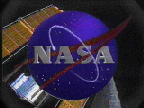 |  |  |

![]()